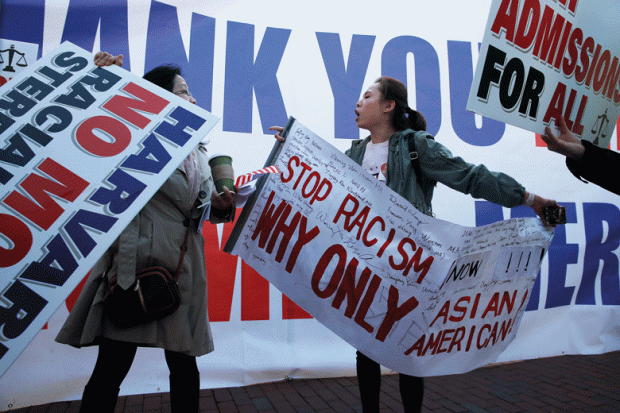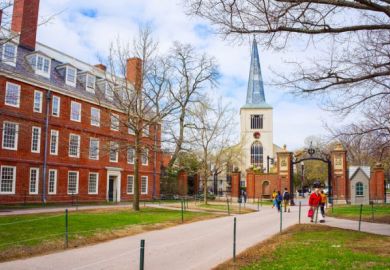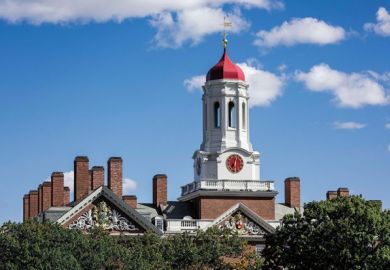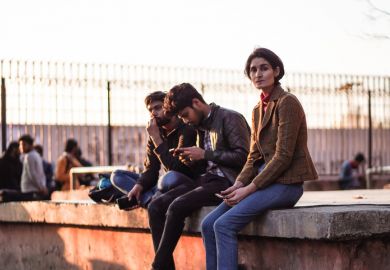Harvard University’s victory in its affirmative action lawsuit may offer it fleeting glory, having disappointed both allies and critics who see minorities still struggling for fair opportunities.
The five-year lawsuit ended with a federal judge in Boston leaving no doubt that she believed Harvard demonstrated both the value of using race-based considerations in admissions and the legal fidelity of its implementation methods.
Such practices, at Harvard and beyond, “will move us, one day, to the point where we see that race is a fact, but not the defining fact” of human relationships, the judge, Allison Burroughs, wrote in her opinion.
But, as had long been expected, the group challenging affirmative action in admissions at Harvard and other universities, Students for Fair Admissions, promised an appeal, looking toward a US Supreme Court with members more conservative than those that have upheld affirmative action in the past.
Yet others – including experts who staked out positions on opposing sides of the trial – saw Harvard as not doing nearly enough to help minority applicants, and they plan to keep pressing it and other elite universities for more improvement.
Peter Arcidiacono, a professor of economics at Duke University who helped SFFA argue that its plaintiff, an Asian American student, was denied admission because racial preferences favoured other ethnic minorities, called Judge Burroughs’ decision “obviously very disappointing” and a “licence to discriminate”. SFFA used Professor Arcidiacono’s analyses to contend that their plaintiff and other Asian American students – who already claim a share of Harvard’s student body well in excess of their percentages of the US population – would hold an even higher share if rated solely on academic and related achievements.
Yet Professor Arcidiacono, just before the trial decision was announced, joined two other experts in issuing a pair of studies – published by the non-partisan National Bureau of Economic Research – showing that Harvard still does much too little to help black and Hispanic students gain admission.
One study found that three-quarters of Harvard’s white students with an advantaged status – recruited athletes, children of faculty and staff, and those with family or economic ties to the university – would have been rejected as applicants without that status.
The second study found that Harvard continues to admit consistent numbers of athletes and students with family links even as its application rates soar, creating further advantages for white and wealthier students.
Such realities, said Evan Mandery, a Harvard graduate and professor at the CUNY John Jay College of Criminal Justice, made Judge Burroughs’ decision – for all its aspirational language – a badly missed opportunity.
While ending the types of preferences critiqued in Professor Arcidiacono’s studies would not eliminate racial biases in Harvard’s admissions, it would do a lot to help, Professor Mandery said.
Instead, Professor Mandery noted, Judge Burroughs concluded that race-based preferences in assessing applicants were warranted at Harvard because no other reasonable alternatives could be found.
In particular, the judge suggested that ending admissions advantages for athletes – who, Professor Arcidiacono and others have pointed out, often play sports that are far more accessible to white and wealthy applicants – would make Harvard “far less competitive in Ivy League intercollegiate sports, which would adversely impact Harvard and the student experience”.
“Her reasoning is stunning,” Professor Mandery said. “In other words, it’s OK for Harvard to do affirmative action for rich, white applicants so that it can remain competitive in football and squash.”
US colleges clearly need to do more than implement race-conscious admissions assessments, said John Yang, president of Asian Americans Advancing Justice, which sided with Harvard in the trial.
Affirmative action in admissions served as “a safeguard against discrimination”, Mr Yang said. “Schools and universities clearly need to do more to increase diversity and inclusion.”
Register to continue
Why register?
- Registration is free and only takes a moment
- Once registered, you can read 3 articles a month
- Sign up for our newsletter
Subscribe
Or subscribe for unlimited access to:
- Unlimited access to news, views, insights & reviews
- Digital editions
- Digital access to THE’s university and college rankings analysis
Already registered or a current subscriber? Login








